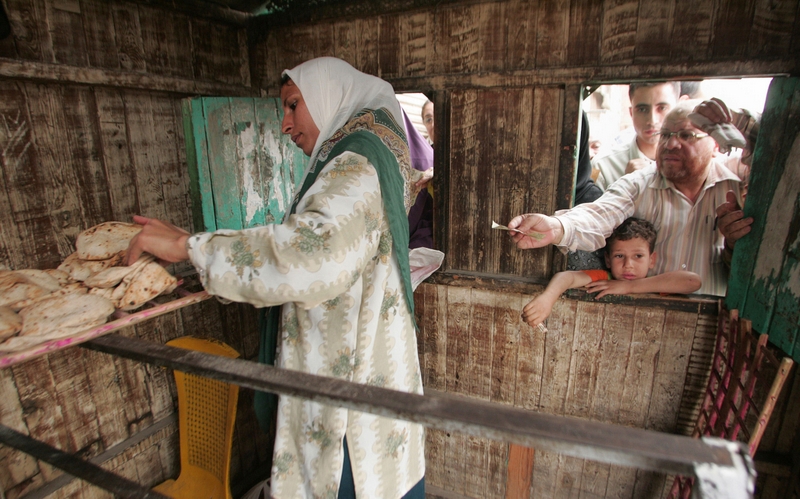One columnist addresses what he sees as flaws in the media, and another addresses current economic issues, including reconciliation with businessmen such as Sawiris and Ezz, and the issue of receiving money from Qatar.
Four Subjects
Dr Ahmed Khaled Tawfik
Al-Tahrir newspaper
Author Dr Ahmed Khaled Tawfik addressed the state of the media in his column. He first commends the few people who voiced their opinions during the Mubarak era, such as Ibrahim Eissa, Alaa Al-Aswany, Abdel Halim Kandil, Belal Fadl and Amr Selim. He mentions that “they all spoke without fear when talk was dear” and that experience entitles them to speak now.
He questions the “fake courage” that he has noticed in the media recently. He says that there were those who were silent, those who were hypocrites, and those who adopted the way of the “President’s Cook,” making people believe the fault lay with the government, not the president. Tawfik asks the army to take over and to “squash the Muslim Brotherhood”.
He then recalls an old article he wrote on Egypt being the biggest buyer of wheat in the world, which is the second subject. He adds that Egypt is about to be “self-sufficient with the wheat it grows for the first time in history”. He also says that the media has not mentioned this point.
The third subject he addresses is resistance. He stresses the importance of resistance, stating: “The current ruling authority is filled with flaws. However, it is fair to point out their advantages as well as the disadvantages.” He blames people for treating the government as a “package,” seeing only what is wrong with its efforts and not what is right. He mentions the problems which the government failed to address such as the security situation, gas, and currency, as well as its “confused decisions and weak grip on the country”. However, he reminds readers that electricity cuts have decreased and wheat agriculture has improved, and these are positive achievements.
Finally Tawfik apologises to Somalis, especially young writer Sa’deya Abdallah, who criticised Tawfik for insinuating in a previous article that Somali women were not beautiful. He mentions that he was highlighting the duality of people in general, and that he was mistaken in his use of words.
Qatari issues and reconciliation
Mohamed El-Saadany
Al-Ahram newspaper
Columnist Mohamed El-Saadany says that solving Egypt’s security and economic problems will pull the country out of the current crisis. He adds that reconciliation with businessmen is crucial to achieving this, “as long as they are not implicated in political corruption”.
He says that that businessmen’s “use of Egyptian law and wrong administrative decisions don’t mean that we should execute them or deny the national economy of their contributions”. He mentions that he was surprised, along with others, to see that the government has adopted this idea. An example of this, he says, was when the Sawiris family was received in the airport by presidential and general intelligence representatives. This was described by the presidential spokesman as “a positive message, meaning that Egypt welcomes all honorable businessmen who open new horizons for investment”.
Then he adds that the cabinet has approved the return of land in the Suez Bay area to Nagib Sawiris and Ahmed Ezz under new conditions. He mentions that he “admires” the way in which the government received the Sawiris family. He adds that the “real surprise” was the return of the land to Ahmed Ezz, who has been sentenced to more than 50 years in jail. He adds that Ezz was “one of the most prominent symbols of the Mubarak regime”.
The columnist also mentions government talks with Hussein Salem, who agreed to give up 75% of his wealth in Egypt and 55% abroad in exchange for the closure of the cases against him to ensure his safe return to Egypt. He adds that the wealth in question is estimated at EGP 11.2bn.
He then addresses the media’s “hysterical fears” regarding the “sisterly country” of Qatar. He adds that media and political resistance see the Qatari investments and loans as “a new colonisation of Egypt”. He mentions that these “attempts” coincide with the withdrawal of financial assistance and aid from other countries, such as the United States, Europe, and other Gulf countries. He adds that these countries know that political stability cannot be achieved without economic security and that “only Qatar adopted a different stance, and decided to positively move towards rescuing what it can of the Egyptian economy”.
He concludes that it is true that every country has its “strategic interests” and that damage to the aid-receiving countries is shaped by how “aware” each country is of those interests.





